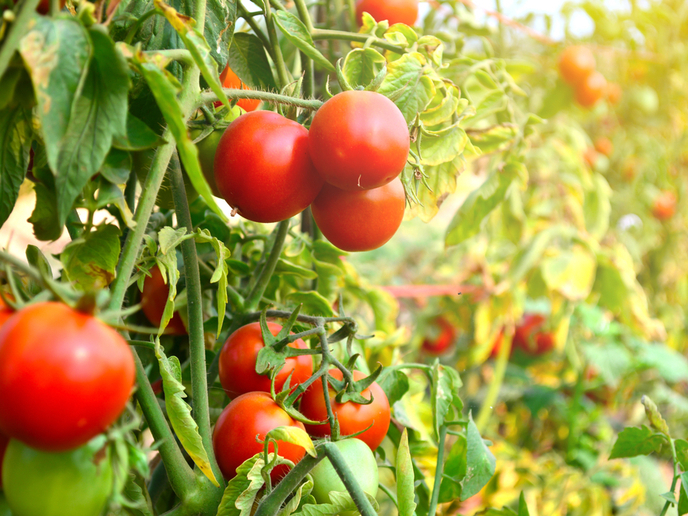Plant growth and development: the effects copper deficiency
Copper (Cu) is an essential micronutrient that is needed by plant, animal and human health. In living beings, it is an essential redox active cofactor(opens in new window) in biological processes but is toxic when in excess. Plants are also sensitive to Cu bioavailability in soil(opens in new window). As they are one of the main entrances of micronutrients into trophic chains, their nutritional deficiencies or excesses are often transferred to consumers. “Which is why deciphering the regulatory mechanisms underlying Cu uptake and distribution to edible plant tissues is crucial,” explains María Teresa Lafuente, coordinator of the EU-funded TOMACOP project. In Europe, 1.2 million km2 of cultivated soils are classified as being potentially deficient in bioavailable Cu. To compensate copper deficiency (CD), soils are replenished with Cu-enriched fertilisers. This strategy is yield-efficient but has significant environmental costs. “Based on these facts, TOMACOP, with the support of the Marie Skłodowska-Curie Actions (MSCA) programme, aimed to characterise the effects of growing tomato plants with suboptimal Cu availability and without the use of Cu-based fertilisers on plant growth and yield,” outlines Lafuente. The project also studied the nutritional value of the harvested fruit, which would allow estimating the impact of sustainable and eco-friendly agriculture on human diet. “The original idea for TOMACOP comes from Paco Romero, MSCA fellow, who has equally participated and supervised the project’s development,” adds Lafuente.
Unearthing the impact of copper deficiency
“We have found that the response to CD stress is differently regulated among the plant tissues studied i.e. root, stem, leaf and fruit,” notes Romero. TOMACOP also discovered that growing tomato plants under CD conditions has a high impact on the fruit susceptibility to develop a physiological disorder known as fruit cracking(opens in new window). It manifests as fractures in the peel or cuticle and makes the fruit unmarketable in terms of appearance, reduces shelf life and increases the susceptibility to fungal infection. “This disorder is common in numerous crops, and breeders have incorporated crack resistance as a desirable crop feature,” highlights Romero. Under the project’s experimental conditions, tomato fruit harvested from well-watered plants grown under CD conditions showed a much higher incidence of fruit cracking than those harvested from control plants grown under optimal Cu content (70 % vs 15 %). “This is the first time that it has been demonstrated the importance of this micronutrient in such disorder. Therefore, CD emerges as an experimental tool to systematic and reproducibly provoke fruit cracking, which will allow studying the mechanisms involved in the regulation of this disorder in an environment where water fluctuations are not the cause for its incidence,” confirms Romero.
Moving forward with new possibilities
TOMACOP results have opened several research lines. “For instance, we are moving forward on understanding what are the molecular mechanisms by which Cu homeostasis is linked to the susceptibility to pathogen infection and fruit cracking. Both features have a marked impact on fruit marketability and acceptance by the consumers and on food waste,” concludes Romero. Additionally, after evaluating the effects of a Cu-based fertiliser-free and pesticide-free growth on the nutritional value and postharvest performance of tomato fruit, the project aims to provide solutions focused on reducing the detrimental effects of this eco-friendly agriculture.







